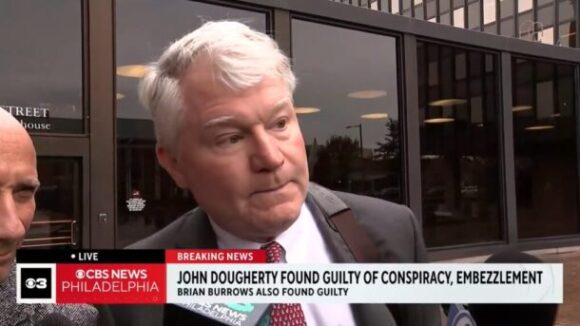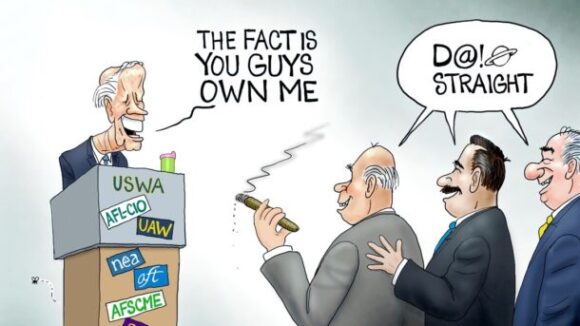Robert Verbruggen digs into the indictment of 100 mobsters and sees deep and long standing connections between the Mob and the union bosses they do business with.
The indictments allege that the mob corrupted Cement and Concrete Workers Union Local 6A (which is headquartered in Flushing, Queens), taking from its honest members “labor union positions, money paid as wages and other economic benefits,” as well as the right “to free speech and [a] democratic process in the affairs of their labor organization.” Named in the indictments is Ralph Scopo Jr., a former head of the union. His father ran the organization’s district council and was convicted of racketeering in the 1980s, and his son (who was not indicted) runs the union now.
Also among those indicted are Albert Cernadas Sr., who stepped down five years ago as executive vice president of the International Longshoreman’s Association and head of ILA Local 1235, as well as the son of the man who replaced him at 1235, Edward Aulisi — prosecutors say Aulisi was recorded promising continued payments to the mob after Cernadas left. The current president of 1235, Thomas Leonardis, was indicted, as was Nunzio LaGrasso, vice president of ILA Local 1478.
Verbruggen hits the nail in the head when he writes that federal labor law is to blame for big labor’s power:
Unions’ power comes from the federal government’s guarantee of monopoly bargaining — that is, when a workplace elects a union, the union has the right to negotiate for all the employees, including the ones who voted against it or would rather negotiate with the employer directly. In the 22 states with right-to-work laws, workers can protest by refusing to join the union or pay dues, though they are still bound by the union contract. By contrast, non-right-to-work states — which include New York, New Jersey, and Rhode Island — reason that it is unfair to allow workers to free-ride on union efforts this way. So, they permit “union shop” agreements, which make dues payments a condition of employment after a certain period of time.
In addition, it is quite difficult to get rid of an existing union, or even to replace it with a competing one. This creates a situation in which the organization is guaranteed a consistent cash flow no matter what it does. Adding to the cash is the fact that unions often handle pension and benefits funds — despite evidence that employers do a better job at that task.


